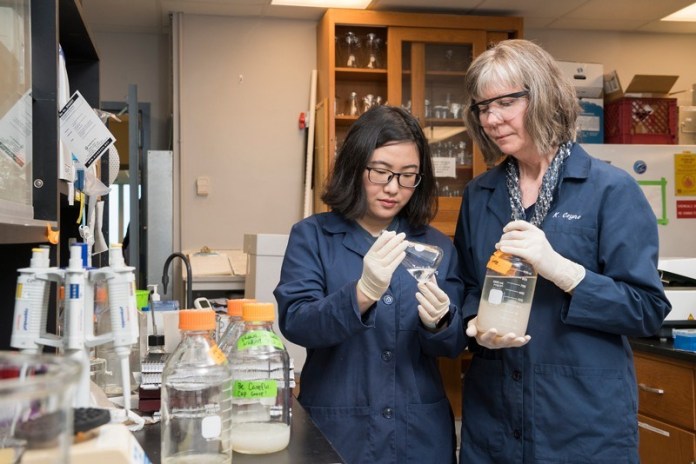
An NCCOS-funded project, led by University of Delaware marine scientist Dr. Kathryn Coyne, characterized an algicidal compound produced by the bacterium Shewanella, and confirmed the compound can selectively kill marine dinoflagellate phytoplankton known to produce harmful algal blooms.

Using small-scale, natural community, microcosm experiments, the Coyne team found the naturally occurring compound induces programmed cell death in dinoflagellates, while having no negative impacts on other phytoplankton, fish, or shellfish. Results pointed to the compound as an effective and environmentally safe natural algicidal agent, but additional research was needed to determine a cost effective and efficient method to deploy it in the environment.
With Delaware Sea Grant funding, the Coyne team is now testing a promising and novel delivery method of embedding the bacteria in gel-like alginate beads. The beads are packaged in mesh bags that can be temporarily deployed in coastal waters where needed to prevent algal blooms from occurring, or to shut down or mitigate blooms already underway.
